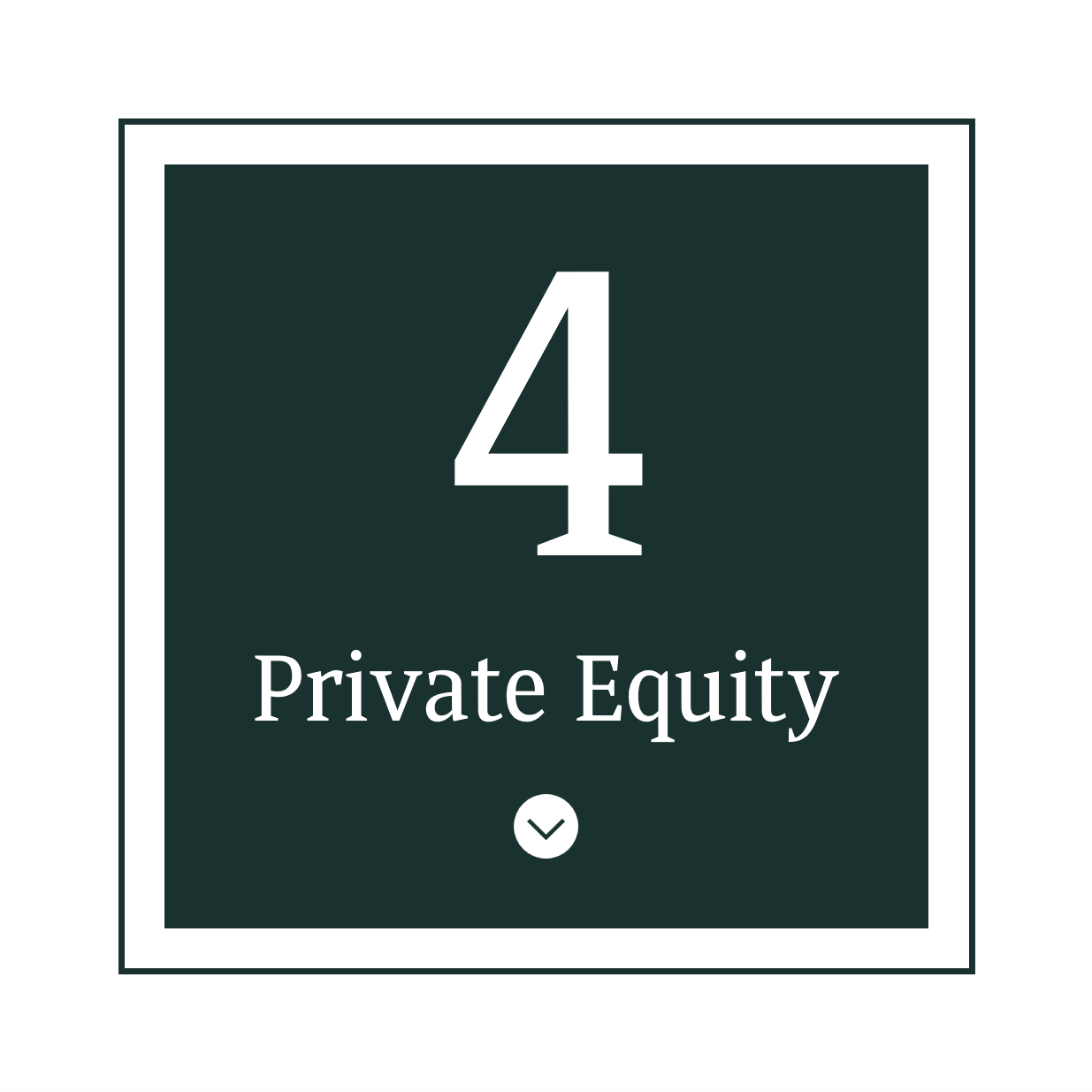Investing in private assets today means performance, stability and diversification while actively financing the real economy. In our present world, it is a strategic choice for the future.
Claire Roborel de Climens
Global Head of Private and Alternative Investments
Private Real Estate: After the dowturn, we see signs of a recovery
The sharp rise in interest rates from 2022 onwards mechanically weighed on asset valuations, with declines of up to 20–30% in certain segments such as offices.
But by as we approach the end of 2025, several indicators point to a turnaround. Here are three key signals signs:
A more favourable monetary environment
Since June 2024, monetary easing has given the market a fresh impetus. The stabilisation of interest rates, combined with the sharp correction in real estate valuations, is now creating conditions that are conducive to asset revaluation and a recovery in transactional activity.
A rebound in transaction volumes
In the first quarter of 2025, volumes increased by more than 30%* compared to the previous year, and the trend continued in the second quarter. Even more significant: after a period when transactions exceeding €100 million were rare, 2025 marks the return of deals above €1 billion—a strong sign of renewed liquidity.
The return of major institutional investors
These players are targeting high-potential sectors:
- Managed rental segment (student residences, co-living spaces, senior housing): structural demand driven by urbanisation and restricted access to land.
- Urban logistics: boosted by e-commerce, which requires three times more logistics space than an in-store purchase.
- Data centres: at the heart of digitalisation, a strategic sector for the coming decade.
Is now the time to Invest?
In our view late 2025 and early 2026 could be windows of opportunity to invest. The best opportunities arise during cycle turnarounds: some managers are already buying at significant discounts with clear value-creation strategies.
The market has not yet regained explosive momentum, but conditions favour buyers. It is at times like this that the best long-term performance is built.
*Past performance is not a reliable indicator of future performance. BNP Paribas makes no guarantee and gives no assurance regarding the success, profitability, return, or expected or projected performance of any investment.
Maxime Jouret
Deputy Global Head of Private Investments
In an uncertain economic environment, Private Infrastructure emerges as a strategic investment solution
Private infrastructure offers investors robust diversification, stable performance, and direct exposure to sustainable megatrends that are transforming our daily lives.
A resilient and promising asset class
- Diversification: With low correlation to equity markets, private infrastructure helps smooth economic cycles.
- Inflation Protection: Revenues are often indexed, providing a natural hedge against monetary erosion.
- Long-Term Visibility: Infrastructure projects span 10 to 30 years, ensuring stable cash flows.
Three tailwinds
Digitalisation
The rise of artificial intelligence and digital usage (for example, a ChatGPT inquiry consumes ten times more energy than a Google search) is fuelling demand for data centers, telecom networks, and power infrastructure.
Electrification
The energy transition is accelerating in transportation, heating networks, and industrial processes, increasing the need for renewable energy and smart grids.
Urbanisation
Cities are ever more densely populated and more connected. Consequently, there is a growing need for investment to upgrade water, transport, energy and telecom networks.
A favourable political and economic context
- In the US, despite debates around the Inflation Reduction Act, plans like the Infrastructure Investment and Jobs Act ($1.2 trillion) have been renewed.
- In Europe, Germany has announced it is earmarking €500 billion to infrastructure.
- The G20 estimates global financing needs will reach $15 trillion by 2040.
Conclusion: a strategic opportunity for investors
Private infrastructure meets a dual requirement: financial performance and sustainable impact. It captures opportunities linked to changing consumption patterns while actively contributing to financing the real economy.
*Past performance is not a reliable indicator of future performance. BNP Paribas makes no guarantee and gives no assurance regarding the success, profitability, return, or expected or projected performance of any investment.

Patrick-Henri Gest
Head of Private Real Estate & Infrastructure

Why is Private Debt here to stay?
Since its emergence in the 1980s, it has experienced remarkable growth in recent years—rising from $300 billion in 2010 to over $1.700 billion trillion by the end of 2024 (Source: Preqin).
This expansion stems from banks refocusing after the Great Financial Crisis in 2008 and the ability of private debt funds to provide flexible, tailor-made financing solutions for businesses.
Unlike speculative bubbles, the growth of this asset class addresses structural, long-term financing needs.
The strengths of Private Debt
For borrowers: speed of execution, certainty of financing terms and conditions, and a long-term partnership with lending funds.
For investors:
- Attractive yields: higher rates than traditional listed bonds, in exchange for lower liquidity and greater higher credit risk.
- Diversification: an asset class uncorrelated with public markets, helping reduce portfolio volatility.
- Financing the real economy: direct investment in companies and infrastructure projects.
Is now the right time to invest?
We believe so.
Private debt focuses on resilient sectors such as healthcare and technology, which are less sensitive to economic cycles and tariffs.
Private debt is a floating-rate asset class. In addition to a benchmark rate, it offers a credit premium, in other words, the spread. Despite recent cuts in policy rates, they remain high compared to the past decade—supporting attractive returns for private debt in 2025.
Conclusion
Private debt stands out as a long-term source of financing for businesses and a compelling opportunity for investors: attractive returns, diversification, and a tangible contribution to the real economy.

Emmanuel Guéneau
Senior Private Equity, Private Debt Investment Specialist
The slowdown in disposals in 2024, and thus lower distributions to investors was a cyclical situation, driven by weaker economic growth and geopolitical uncertainty.
Since mid-2025, a clear recovery has emerged, and some investors are increasing their allocations to private equity.
Why does Private Equity outperform over the long term?
Historically, across market cycles, Private Equity has delivered returns that exceed those of public markets. This outperformance is driven by three key factors:
Operational value creation
Private Equity funds act as active shareholders. They support companies in strategic development—acquisitions, international expansion, innovation, and strengthening management teams. This structured approach continues even during periods of volatility.
Long-Term investment horizon
The management of private companies do not have the constraint of reporting quarterly earnings or watching their share price. This means that they can entirely focus on creating value and making long-term decisions without the pressure of short-term market expectations.
Access to exclusive opportunities
Private Equity provides access to a broader investment universe than public listed markets, particularly in innovative SMEs and middle-market companies. These businesses are often sector leaders but underrepresented in stock indices.
Example: In the US, only 13% of companies generating more than $100 million in revenue are publicly listed; in Europe, that figure is only 4%.
(Source: S&P Capital IQ)
Long-term conviction
Despite short-term challenges, Private Equity fundamentals remain strong. Historically, long-term conviction strategies have delivered their best performance in uncertain environments.
Claire Roborel de Climens
Global Head of Private and Alternative Investments
Global expertise and local insights: let our team guide you
At BNP Paribas Wealth Management, we have extensive experience in private markets. Our team rigorously analyses and selects funds, and carries out post-investment monitoring. We emphasise the importance of conducting thorough due diligence and understanding the specific terms and conditions of each fund. Moreover, we advise our clients to make investments that align with their expectations, investment profile and knowledge of private markets.
For more information, please contact your relationship manager.

This marketing communication is issued by the Wealth Management business line of BNP PARIBAS SA a French limited liability company with share capital of 2,261,621,342 Euros whose registered office is located at
16 boulevard des Italiens 75009 Paris, France, registered with the Paris Trade and Companies Registry under number 662 042 449, supervised and authorised as a Bank by the European Central Bank ("ECB") and in
France by the French Autorité de Contrôle Prudentiel et de Résolution (“ACPR”) and regulated by the French Autorité des Marchés Financiers (“AMF”) (hereinafter “BNP Paribas”).
This is a communication for marketing purpose only. It is not a contractually binding document or a communication containing information required by any regulation, and it is not sufficient to take any investment decision.
It has not been produced in accordance with regulatory constraints to ensure the independence of investment research. This communication has not been submitted to the AMF or any other authority.
This communication is confidential and intended solely for the use by the person to whom it has been delivered. It must not be distributed, published, reproduced, or disclosed in whole or in part to other parties
nor may it be quoted or referred to in any communication without the prior consent of BNP Paribas.
This communication is for informational purposes only and does not constitute an offer, solicitation or investment advice in any state or jurisdiction in which such offer, solicitation or advice is not permitted,
or to any person in respect of whom such offer, solicitation or advice is unlawful. It shall not form the basis of, or be relied upon in connection with an investment. It is not, and should under no circumstances
be considered as a prospectus. For the purposes herein, “BNP Paribas” means BNP PARIBAS SA and its subsidiaries and branches.
Although the information provided herein may have been obtained from public or non-public sources considered to be reliable, and while all reasonable care has been taken in the preparation of this communication,
BNP Paribas does not make any representation or warranty, express or implied, as to its accuracy or completeness and does not accept responsibility for any inaccuracy, error or omission nor any liability for
the use of or reliance on this communication or any part of the information contained herein. BNP Paribas is not giving any warranties, guarantee or representation as to the expected or projected success,
profitability, return, performance, result, effect, consequence or benefit (either legal, regulatory, tax, financial) of any service, product or investment. Investors should not give excessive confidence in information
relating to theoretical historical performance. This communication may refer to past performance: past performance is not a reliable indicator of future performance.
The information contained in this communication has been drafted without taking into account situations, including your financial situation, risk profile and investment objectives. Before investing, the investor
must fully understand the risks, including any market risk associated with the issuer, the financial merits and the suitability of such investment and consult its own legal, tax, financial and accounting advisers
before making an investment decision. Any investor must fully understand the characteristics of the transactionand, if not otherwise provided, be financially able to bear the loss of his investment and want to accept such risk.
The investor should remember that the value of an investment as well as the income from such may fall as well as rise and that past performance is not a guide to future performance. Any investment is subject
to prior reading and to an understanding of the investment documentation, which describes in detail the rights and duties of the investors and the risks inherent in an investment in that investment.
Therefore,prospective investors should not rely on any information not contained in such investment documentation. Save as otherwise expressly agreed in writing, BNP Paribas is not acting as financial adviser of,
or in any fiduciary capacity to, prospective investors.
The information, opinions or estimates contained in this communication reflect the author's judgement on the day of his drafting; they must not be considered as authority or be substitutes by anyone in the exercise of
his or her own judgement and are subject to change without notice. Neither BNP Paribas nor any BNP Paribas group entity will be liable for any consequences that may arise from the use of the information,
opinions or estimates contained in this communication.
By accepting this documentation, you agree to be bound by the foregoing limitations.
© BNP Paribas SA (2025). All rights reserved.









